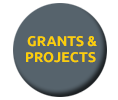
Wellington-based medical researchers have received up to $64,700 in Research For Life’s first funding round for 2021.
Research For Life funds innovative quality research undertaken by researchers in the early stages of their careers who, through their work, will advance the quality of healthcare in the Wellington region and beyond.
This round saw five researchers receive research grants to undertake innovative medical research and one travel grant was awarded to assist a local researcher meet the cost of presenting her research findings at a medical conference. The successful applicants for research grants were:
Georgina Bird
Victoria University of Wellington PhD Student, Georgina Bird was granted up to $15,318 from Research for Life to help advance our understanding of the responses of the immune system in heart attack patients. Heart disease is the leading cause of death and morbidity in New Zealand.
Georgina’s PhD research explores how a patient’s immune system responds and reacts in the heart tissue following a heart attack. Specifically, she focuses on how the B cell, an important central immune cell, may be involved in changing the immune response and how this affects healing and long-term clinical outcomes following a heart attack.
This research is a collaborative project with the Wellington Cardiovascular Research Group and The University of Otago, Wellington.
Andrew Wilson
Andrew Wilson, a PhD student at the University of Otago, Wellington, was granted up to $10,900 for his project to assess the extent of genomic instability in cell lines that model malignancies.
Cell lines that model cancer are commonly used tools in a researcher’s arsenal to help uncover the mechanisms behind the disease, enabling the discovery of novel cancer therapies. As cell lines can supply a researcher with an infinite supply of biological material for their experiments, it is imperative that these cancer cells are comprised of a genomic landscape comparable to their human cancer counterpart. Therefore, there is a need to assess the extent of genomic instability in cell lines that model cancer with the hope that they do not deviate considerably from their initially observed genetic landscape reported by suppliers.
Dr Judy Ormandy
Dr Judy Ormandy, an Obstetrician and Gynaecologist at CCDHB, was granted up to $9,275 to support research aimed at safely improving outcomes for babies born by planned caesarean section (CS).
Each year, 7500 babies are born by planned CS (around 1 in every 10 births) including 450 babies in Wellington. Planned CS increases the risk of a baby being admitted to the neonatal unit for breathing support. Antenatal corticosteroids may reduce this, but the evidence is limited.
The C*STEROID Trial will obtain high-quality evidence on the use of corticosteroids before planned CS, informing future care in New Zealand and around the world.
Hasanah Hamizan
Hasanah Hamizan was granted up to $14,086 to unpack the potential benefits of the drug nalfurafine for Multiple Sclerosis (MS) treatment.
Hasanah’s research will explore the little-known mechanisms and immune response (particularly mast cell activity) involved during nalfurafine treatment of MS in animal models.
Hasanah is a first-year PhD student working under the supervision of Prof Anne La Flamme in the School of Biological Sciences and Centre for Biodiscovery at Victoria University of Wellington.
Mackenzie Kiernan
Mackenzie Kiernan, a PhD candidate in Immunology at Victoria University of Wellington, was granted up to $14,518 to undertake research to help find a treatment for multiple sclerosis (MS).
MS incidence in New Zealand continues to increase. MS results in the breakdown of nerves leading to significant pain and paralysis in individuals affected.
Mackenzie’s research aims to determine the mechanisms promoting restoration of nerve conduction, aiding in the production of safe and effective treatment for this disease.
The successful travel grant applicant for this funding round was:
Dr Claire Henry
Dr Claire Henry, a Research Fellow in the Department of Obstetrics and Gynaecology at the University of Otago Wellington was granted up to $600 to attend the New Zealand Gynaecology Cancer Group meeting in Christchurch this year.
The meeting has a science session in which Claire will be presenting her work on molecular profiling of endometrial cancer.
Associate Professor Rebecca Grainger, Chair of RFL’s Research Advisory Committee, said: “Research For Life congratulates the successful applicants from this funding round.
“The research they are undertaking is innovative, well-conceived and vital to achieving continuing improvements in health outcomes in the community.”
The closing date for the next round of Research For Life research grant applications, including travel grant applications, is Thursday 5 August 2021.
ENDS



